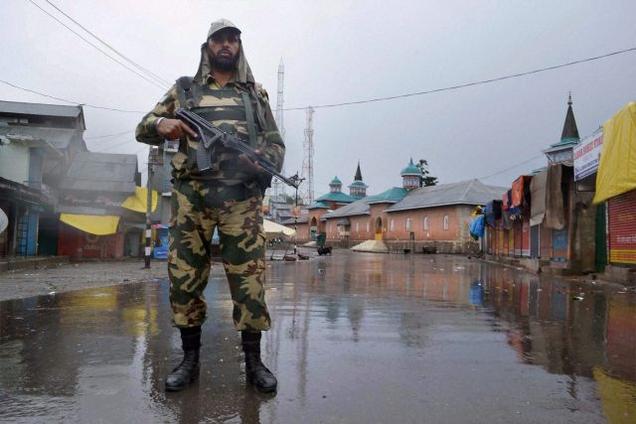Raipur, October 2: The Chhattisgarh government has asked for an unprecedented 1,500 companies of central paramilitary force, for the forthcoming polls in addition to the existing battalions in Maoist-controlled tribal districts of South Chhattisgarh. At least half of the additional forces will be placed in South Chhattisgarh, senior officials in the State administration told The Hindu.
The State asked for nearly 860 companies during the last Assembly election, in 2008. Senior officials in the administration – both State and Centre – said the intensity of Maoist action has enhanced “proportionately with the increasing number of police encounters” in the rebel stronghold thus instigating the government to ask for additional forces.
Analysing the decision, the Director General of Police (DGP) Ramniwas told The Hindu that “assuming that the election could also be conducted in one phase” the request has been forwarded. “Last time we got 330 companies and the same force stayed for the second phase,” he said. But, even if the rest of the state does not require such a huge force for each phase, Bastar will always require “800 companies,” the DGP said.
One company of a central paramilitary force, like Central Reserve Police Force (CRPF), on an average, has 135 soldiers. So, altogether, 1500 companies will have 2,02,500 security personnel. If “800 companies” are in Bastar, then 108,000 additional central paramilitaries will be located in the tribal areas of South Chhattisgarh, to conduct a fair poll.
Approximately 50,000 security personnel, comprised of nearly 30 battalion of central paramilitaries (each battalion has roughly 1100 personnel) and State forces of not more than 20,000 are already posted in seven districts of south Chhattisgarh. So, once the additional force is approved, Bastar will have approximately 160,000 security personnel.
South Chhattisgarh’s seven districts have a population of little over 30 lakh. With about 160,000 security personnel stationed during the elections, the armed security personnel to civilian ratio will be 1:19, which would make Maoist uprising in Chhattisgarh one of the top militarized conflict in the world, albeit during the election. In addition, more recruitment of State police is in the pipeline and few more battalions of Seema Suraksha Bal (SSB) are also going to get posted in parts of Chhattisgarh.
Data published by Central Statistics Organization (CSO), Kabul and World Bank’s Development Indicators (WDI) under the chapter “Military Expenditures and Arms Transfers” shows, armed security personnel to civilian ratio in Afghanistan in 2011, at the peak of the conflict, was approximately 1:73. In Israel – one of the top militarized countries – it was 1:42, in 2011 as per WDI. Even Kashmir, which has often been referred as the “worlds most militarized conflict” has a civilian to security personnel ratio ranging from 1:21 to 1:27, in various non-governmental reports.
However, the State officials are not ready to accept that Bastar Division is soon to become the most militarized area. The officers argue, forces are much less “during normal times.” While it is true that about one hundred thousand additional forces have been demanded only for the election, about 60,000 men are always garrisoned in South Chhattisgarh, which makes the “normal” time ratio of security personnel to civilian 1:50, again one of the highest in the world and far higher than country’s average.
Why is the force required?
“If I had to conduct election following EC guidelines, I need to have that kind of a force. In a place like Silger (in Bijapur) we need at least 10 companies to conduct a fair election,” Mr Ramniwas said. Population of most of the south Bastar villages are normally around seven hundred, so the ratio of civilian to security personnel in a village like Silger will be nearly 1:2, during election times.
Is this an attempt to establish democracy under the barrel of gun? “What do you do – there are 300 polling stations which are sensitive and I need 400 companies to guard those,” said the DGP.
But if Maoism is losing its sheen – as getting reported – then why does the administration need record number of forces to conduct a fair election? “We are carrying encounters in Maoist territories, entering areas which were hitherto impregnable. Naturally, the preparedness of the rebels has increased. Therefore, we need more forces to combat the guerrillas particularly during the election,” said a senior officer, on condition of anonymity.
There are a plethora of other explanations regarding the need for record numbers of security personnel to conduct fair elections. All, however, point to the fact that Bastar will again witness an election closely guarded by guns from all sides.

